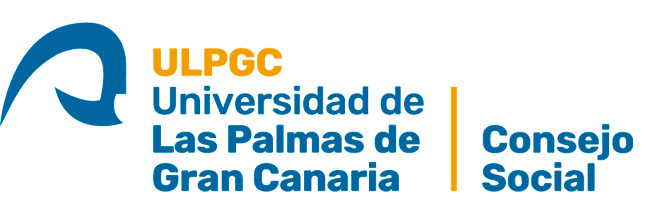The plenary also approved the rectoral team’s criteria and guidelines for the drawing up of the 2022 ULPGC budget, along with the budget allocation to university centres, departments and institutes for that year.
The plenary of the University of Las Palmas de Gran Canaria’s Social Council today approved the University’s proposal to introduce two new undergraduate engineering degrees for the 2022-2023 academic year: Biomedical Engineering, and Engineering Physics and Mathematics. Both degrees – which are completely new within the university sector and which will be assigned to the School of Telecommunications, and the School of Computer Engineering respectively – respond to the sector’s growing demand for professionals and to the University’s encouragement of STEM (Science, Technology, Engineering and Mathematics) qualifications. There are, however, a limited number of such qualifications in European Union member states and this could affect their future economic and social development. The lack of these qualifications is even more profound in Spain, where they do not exceed 5%.
The ULPGC Degree in Biomedical Engineering stems from the different research proposals which have been developed over a number of years, both in the School of Telecommunications and Electronic Engineering and through the connections which are systematically maintained with departments linked to the Faculty of Health Sciences. This qualification provides a strong insight into computer information processing and the fundamentals of biology and medicine.
Moreover, in the specific case of the Degree in Engineering Physics and Mathematics, the aim is to train professionals with a solid understanding of physics, mathematics and computational tools which will allow the analytical and computational analysis, modelling and solution of complex science and engineering problems, even in the fields of biomedicine and economics, whether it be in the aerospace industry, medical physics, nanotechnology, renewable energy, etc.
Both degrees are offering 50 places in the first year of the course.
ULPGC 2022 Budget Criteria and Guidelines
During the plenary, the ULPGC Social Council also favourably reported on the criteria and guidelines presented by the University’s governing body for the drawing up of the 2022 budget, guidelines intended as the beginning of a shift in the priorities of the ULPGC management model for the coming years. Thus, the new rectorate team led by Luis Serra has submitted a document to the Social Council with proposals for 28 objectives and more than 50 actions to be undertaken in every area of ULPGC governance in 2022. Specifically, the following is highlighted within the rector’s remit: the creation of the fifth ULPGC Strategic Programme; the development of policies aimed at promoting and improving the execution of the United Nations Sustainable Development Goals; the encouragement of public health policies; the prioritising of objectives regarding the quality of the different sections of the ULPGC; the development of digitalisation policies; and the development of new inspectorates in order to ensure compliance with current regulations.
In the area of management, the ULPGC governing body proposed the following in its document of guidelines and actions for 2022: to strengthen support for management units which take part in recruitment; to have an action plan for the improvement of and investment in administration services and university infrastructures; to introduce a new model for the institution’s analytical accounting; to introduce a plan for updating administration and services staff IT resources; to reduce the percentage of administration and services staff positions which are temporary and to convene swifter procedures for the hiring of new temporary staff with immediate effect; to modify the list of administration and services staff jobs; and to improve the University’s ICT infrastructures, among other key issues.
The members of the plenary welcomed the return to the presentation of a previous document with guidelines for each area of ULPGC governance, welcoming also the criteria and objectives set by the university in order to justify the budget created for the following year. Likewise, they favourably reported on the criteria and amounts relating to the 2022 budget provision for the university centres, department and institutions. On this matter, the ULPGC manager explained to the plenary that the provisional budget allocations for 2022 amount to 1.08 million euros for the departments; 753,531 for the centres, schools and faculties; and 515,861 euros for the university research institutes.
In his report to the plenary, the chairman of the Social Council, Jesús León Lima, explained the position held by the Conference of Social Councils of Spanish Universities (CCS) regarding the draft bill put forward for a University Systems Act (LOSU) which, in the opinion of the highest representative body of university Social Councils, “wastes the opportunity to modernise the Spanish university system and align it with comparable successful models from around the world”, failing in particular to broach the issue of profound change to the university governance model, “in order to achieve genuine operational and institutional self-governance”.
Similarly, Jesús León Lima explained to the plenary the important support and research that the ULPGC is providing in the face of the current volcanic eruption on La Palma, “primarily through the creation of an advisory committee to collect scientific data and make them available to the authorities”. In this respect the rector of the ULPGC, Luís Serra Majem, emphasised that there are currently 50 ULPGC researchers working on different projects relating to the eruption, “and the close collaboration with the POLCAN [Oceanic Platform of the Canary Islands]”.
During this most recent Social Council plenary the new Council member, Isabel Bello, took up her position representing the Tenerife Island Council.


